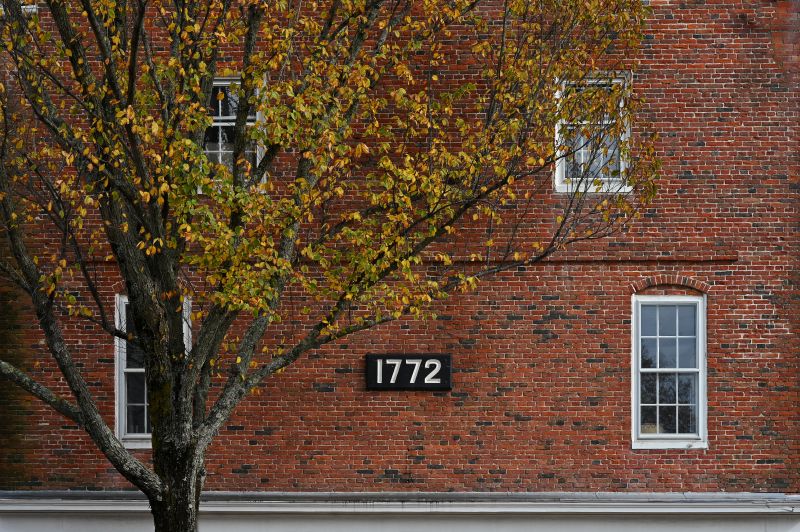
So you’re thinking about buying or selling real estate in Boston. What can you expect? Are prices destined to keep increasing or are we going to hit a plateau or even a downturn? Is COVID-19 going to blow up the game? How is the Boston housing market going to look by 2030?
We don’t blame you for asking these questions. Boston real estate is a big investment and there is a lot of uncertainty in the air right now. So let’s do a little forecasting. First, we’re going to look at the most important phenomena at this point in time: record-low interest rates, the apparent end of the Boston housing shortage, and the impact of COVID-19 on the rental market. From there, we’ll look at the underlying stability of the Boston housing market, comparing the fundamentals we see in Beantown to a few other cities. Then we’ll take a look at what the City of Boston is trying to accomplish in regard to housing over the next decade.
Let’s jump into our Boston real estate market analysis for 2020 and beyond.
How about those interest rates?
Long-term interest rates hit another all-time low, clocking in at 2.86 percent just the other week. According to Freddy Mac, mortgage applications are up 25 percent compared to this time last year. The Boston housing market has seen an increase in the number of listings steadily over the last 7 months. Interest rates are clearly a foundational part of our outlook for the Boston housing market. They are shaping a lot of the activity we should see in the coming months. Speaking of, how about that Boston housing (non)shortage?
If you have tried to buy real estate in Boston over the last couple of years, you probably know that there has been an inventory shortage. Even at the beginning of the pandemic, there were still bidding wars and high prices.
There were many factors that led to the inventory shortage before the pandemic. According to Harvard’s own Joint Center for Housing Studies, there were four factors at work. One, Boston continued to draw high-wage workers, driving up demand. Two, we’re building far fewer homes now than we were back in the sixties, seventies, and eighties. Three, we’re on the Atlantic Coast and can’t expand eastward. Four, land use regulations in New England’s municipalities often make it harder to build high-density housing. An immediate fix for these issues does not appear to be on the horizon, but there are other changes taking place?
Boston Pads recently did data analysis, comparing the number of listings for condominiums, single-family and multi-family housing in the Greater Boston area in March versus September. The analysis found that the number of listings increased from 867 in late March to 2,262 in September. The analysis also found that the average number of days on market has slightly decreased from 78 to 66 on average.
This may be a function of interest rates alone or have more complex drivers; more analysis is needed here. In any case, Boston is rapidly shifting into a buyer’s market.
Over the next few months, Aubrey Liss, Director of Operations for Boston Pads predicts “that more listings will come available in the City of Boston, as either owners with vacancies decide to list or more people decide to move further from the city for a “more for your money” approach.” This has been common in city areas all across the country and we expect that this will continue through the pandemic.
This trend has been pretty good for single-family homes in the suburbs and exurbs. Homebuyers, many of whom are working from home at the moment, are willing to move further out for the lower prices and extra space. These properties are a better deal now than they were 12 months ago (and means that the market might not see these trends continue if work-from-home policies change). Conversely, the condo market has suffered. Similarly, something Bostonians can also do pretty is score an apartment. There is an abundance of open rental units in the city. College areas have seen the most drastic price reductions, which is no surprise since most of the city’s universities have opted to shift to online classes.
Make no mistake though, the surplus of apartments is an outcome of COVID-19. Chances are good that the rental market will pick back up when the schools reopen and the economy gets on a more even keel. But when (or if) that is going to happen is something of an unknown right now. This brings us to a pretty big question as we discern the overall outlook for the Boston housing market…
 Will the Boston real estate market collapse?
Will the Boston real estate market collapse?
In April 2020, a real estate analytics company named ATTOM Data Solutions released a report on which U.S. housing markets ran the highest risk of a coronavirus-related collapse. The report found that while the Northeast is one of the most vulnerable regions in the U.S., the risk was highest in counties scattered throughout New Jersey and New York State.
USA TODAY took ATTOM’s findings and ran with them, coming up with a list of 30 at-risk metropolitan areas (ATTOM’s analysis looked at counties). Topping the list was the Las Vegas area, followed by New Orleans and Bakersfield, California. Here are the markets in the Northeast that made the list:
· Allentown-Bethlehem-Easton, PA-NJ (27th)
· Philadelphia-Camden-Wilmington, PA-NJ-DE-MD (22nd)
· New Haven-Milford, CT (20th)
· Providence-Warwick, RI-MA (18th)
· Bridgeport-Stamford-Norwalk, CT (15th)
· New York-Newark-Jersey City, NY-NJ-PA (10th)
Boston shares a few risk factors with its Northeastern neighbors, such as a high housing cost to income ratio, but Beantown doesn’t seem to face as much imminent danger as other places. Boston has a diversified local economy with a lot of tech workers, which has helped the housing market absorb some of the coronavirus shock.
The local economy gives Boston – and its housing market – an extra layer of protection. The Brookings Institute did some research recently and found that the cities that are likely to suffer the most during a coronavirus-based recession are energy hubs like Midland, Texas; and tourist destinations like Atlantic City. According to these numbers, Boston is a friendlier place to be than: New York City; Greenville, North Carolina; Colorado Springs, Colorado; Santa Fe, New Mexico; and approximately 287 other U.S. markets.
This does not mean that things are going to be easy for Beantown, just that the dip shouldn’t be as low as it will be elsewhere. It also means that you can make your real estate moves – be it over single-family homes, rental properties, commercial real estate, what have you – with a greater sense of security than you might in another market. Real estate is a big gamble in some parts of the U.S. It is less of one here. In this respect, the outlook for the Boston housing market is pretty positive.
So, we have low-interest rates plus a shift toward a buyer’s market plus high vacancies plus strong city fundamentals plus (and it’s a big plus) global pandemic. All of these but the low-interest rates are “bottom-up” factors, meaning that they are driven by things like market behaviors, epidemiology, etc. Ok, you can fairly claim COVID-19 policies like stay-at-home orders and travel restrictions are something that the government is “doing,” but these policies are not being implemented for the sake of the housing market.
Now let’s talk about the “top-down” decision-making, focusing on how the City of Boston is approaching the local housing market. As far as the outlook for the Boston housing market goes, this is a pretty vital element.
Boston 2030
In 2014, the Office of the Mayor released a report titled Housing a Changing City: Boston 2030. This report zeroed in on a challenge we mentioned earlier – how Boston’s growing population has created an affordable housing shortage.
In the 2018 update, this report stated the following goals:
· “Build 69,000 new housing units across a range of incomes by 2030.”
· “Redirect development pressures away from core neighborhoods and towards opportunities for growth.”
· “Create 15,820 income-restricted long term affordable homes.”
· “Retain Boston’s existing income-restricted/affordable housing.”
· “Rebuild Boston’s Public Housing.”
· “Launch a 1,000 homes campaign.”
· “Prevent evictions and promote housing stability.”
· “Strengthen communities through homeownership.”
The goals are focused on the key structural problem, giving more Bostonians an opportunity to find affordable housing. Clearly, there is a lot of local politics that factor into these goals (for instance, where public housing will be built) and ample room for debate on what the best methods for achieving these goals are (how, exactly, should the city “prevent evictions”). These goals could also change under a new mayor, or be disrupted by outside factors. If the shift toward a buyer’s market lasts and improves affordability for middle-class and lower-income residents, the Boston 2030 plan may shrink in significance.
In terms of forecasting, the open question is whether this effort will relieve pressure on the Boston housing market or not. If everything goes according to the City’s plan, or the market improves on its own, the outlook for the Boston housing market into 2030 includes more affordability that we see today.
Ok, so what is the forecast?
It looks like Boston’s basic challenges – low inventory and a lack of affordable housing – are shifting in the other direction. Thanks to COVID-19, renters might find opportunities they didn’t have this time last year. The overall market seems unlikely to collapse and the city is working on the structural issues around affordability. To us, the outlook for the Boston housing market is a positive one.
If you’re ready to take the leap, check out what Boston Pads has to offer. Our comprehensive real estate data can help you figure out what your home is worth, what properties and neighborhoods you can afford, and when the best time to list your house, condo, or multi-family rental unit is. If you’re a renter, you’ll definitely want to spend some time with us. We’ll give you the inside track on Boston’s hottest properties, no matter what part of town you’re looking at.
Related Articles
Boston-area home prices bounce in early spring amid plunging supply
Greater Boston house prices are up again amid the coronavirus pandemic

Demetrios Salpoglou
Published October 13, 2020
Demetrios has pulled together the largest apartment leasing team in the Greater Boston Area and is responsible for procuring more apartment rentals than anyone in New England – with over 130k people finding their housing through his services. Demetrios is an avid real estate developer, peak performance trainer, educator, guest lecturer and motivational speaker.










